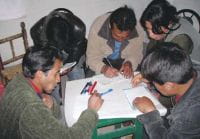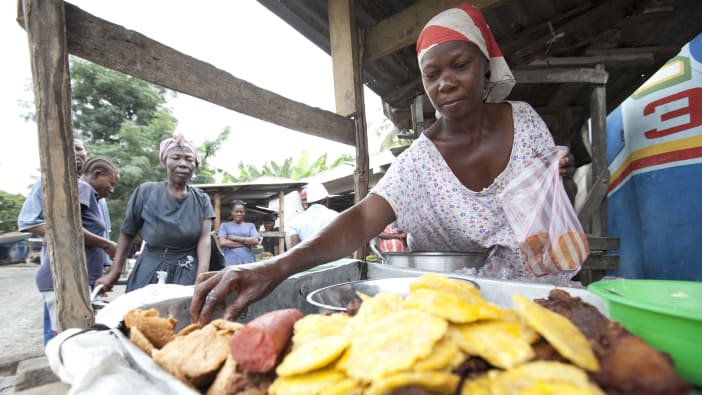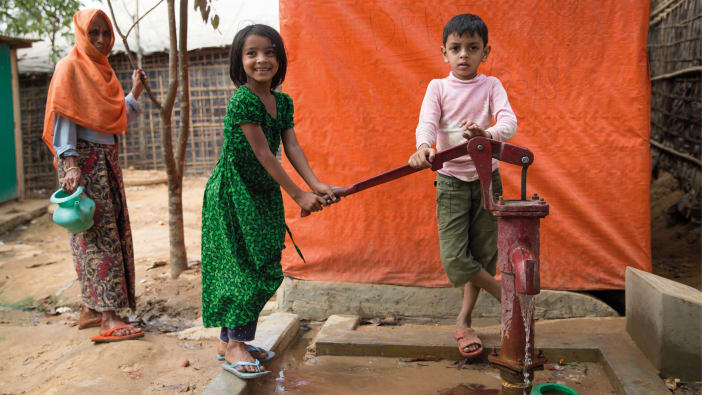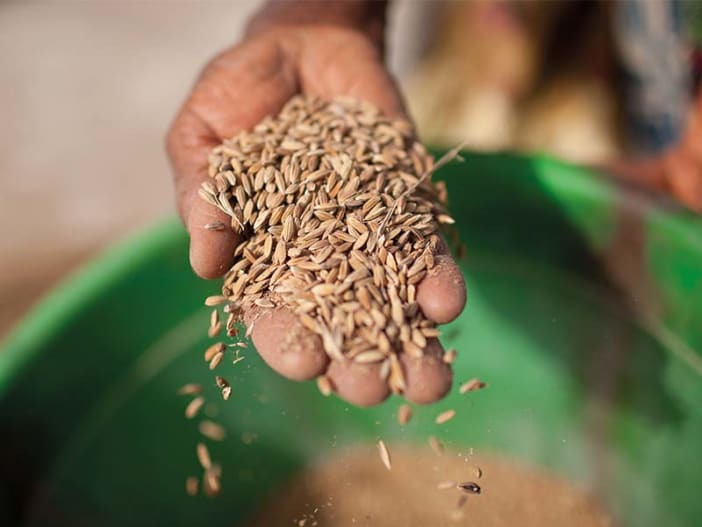Since 2000, Peru has experienced ongoing economic growth, which has brought success but also social challenges to the country. Between 1980 and 2000, Peru faced internal armed conflict that led to high levels of migration from the southern highlands towards Lima, the capital city. As a result of this movement, many people from the region of Ayacucho settled in the southern edges of Lima in hope of a better life. This massive wave of migration highlighted inequalities and social and economic poverty in the city.

Articles
Using profits to change lives
A case study on the impact of micro-enterprise and using profits to transform lives
2009 Available in English, French, Portuguese and Spanish

Photo: Céline Romera/Manos Amigas
The handicrafts trade represents one of the sectors of the economy in which there is more micro-enterprise and more informality. The law governing craftsmen and women lays down a legal framework which recognises craftsmen and women as people who create identity and traditions. It also recognises the importance of handicrafts in Peru culturally as well as economically.
It was in this diverse context that Yannina Meza, her brother Roberto (a minister in the evangelical church) and her mother (a handicrafts teacher) set up their own business to support local micro-enterprises. Yannina had worked for several years in companies exporting handicrafts.
Qualities in business
Manos Amigas (meaning ‘friendly hands’ or ‘helping hands’) is a small business which sells handicrafts in Peru and overseas. It is a member of the World Fair Trade Organisation. Since it was set up in 1991, Manos Amigas has been creating marketing opportunities for good quality traditional and modern handicrafts, coming from all regions of Peru.
As a fair trade organisation, Manos Amigas has a transparent relationship with its producers. Producers determine their own prices and Manos Amigas gives 50 per cent payment in advance so that the producers can buy the materials they need. The organisation also takes into consideration its concern for the social, economic and environmental well-being of small-scale producers who are marginalised. Manos Amigas works with 87 micro-enterprises in cities and rural areas throughout Peru.
Since it was set up, Manos Amigas has continued to grow alongside the producers and clients by making quality of goods, respect for people and good organisation three of the basic components of a successful business.
Projects and training
To enable the craftsmen and women to increase their income Manos Amigas has developed training and consult ancies to support the micro-enterprises in the communities where it works. Each year Manos Amigas reinvests 20 per cent of its profits to develop social activities in those communities.
At present there are three projects that benefit from this social investment. The first provides Sunday breakfast for girls and boys in marginalised areas in the Chorrillos district to the south of Lima. The second is a project providing access to education for adolescents from an isolated rural community in the centre of the country.
The third project is ‘The mobile training school for craftsmen and women’. This project grew from two key needs:
- To improve the quality of products so that the supply is suitable for exporting.
- To obtain more orders for the craftsmen and women and, therefore, help to improve their living conditions.
The school offers training and consultancy to craftsmen and women, some of whom work with Manos Amigas. The training focuses on themes such as the administra tive management of microenterprises, costs, marketing, marketing with a focus on tourism, trends in inter national markets and design. The consult ancy focuses on the productive organis ation of workshops. For example, how to calculate costs, health and safety at work, how to resolve con flicts with staff and any other issues requested by the craftsmen and women.
The school is not a building, but a group of trainers who can reach communities in rural areas, as well as the cities, with very practical and participatory training programmes. The consultancies are usually on an annual basis, but can be several times a year in some particular cases.
Benefiting communities
The mobile training school reports good results. There is a notice able, ongoing improvement in quality and administrative organisation, and a service that complies more closely with international standards. In addition, it has been noticed that some of the pro ducers want to carry out similar social work to Manos Amigas so that their activities can benefit their own communities. There is evidence of significant improve ments in the living conditions and edu cation of the children of craftsmen and women who work with Manos Amigas and who benefit from the projects.
Many of the craftsmen and women who work with Manos Amigas are inspiring examples of enterprising families. Despite the gloomy social and economic outlook facing the country, the creation of small businesses has enabled handicrafts to become a means of earning an income and improving the standard of living.
Céline Romera is the Training Co-ordinator for Manos Amigas.
Av. Del Ejército 1067 Mirafl ores Lima 18 Peru
Email: [email protected] Web: www.manos-amigas.com
Case study
In the east of Lima, Alberto and Sirci Marcapiña live with their two children in a house on the main road.
Alberto has established his workshop and accommo dation for his family in his twostorey house. Alberto was born in the city of Ayacucho. He grew up looking after livestock and creating toys out of clay. His elder brother taught him how to make pottery which had a practical use. In the early 1980s they fled the violence in Ayacucho and migrated to Lima. Later on, Alberto created his own workshop, and met and married his wife. Together they have built their business.
Alberto and Sirci work with young people in the district. In particular they work with single mothers to help them earn an income to support their family. They also support students by providing part-time employment so that they can finance their studies.
They are very committed to their new community in Lima, as well as their home community in Ayacucho. Since 2003, depending on their financial results, they have run social work activities to benefit young people in Ayacucho. In 2003 they gave a donation of school equipment to the primary school in Ayacucho. In 2004 they organised talks on family planning to help single mothers. The following year, they gave part of their land in Ayacucho to build a sports ground for young people. Last year, they gave grants of 200 soles (about US$66) to the best pupils in Ayacucho College. They are convinced that it is their responsibility, as successful artisans, to help to improve living conditions for others.
Receiving equal and humane treatment as producers, and being considered as partners more than suppliers, has been an inspiration for the craftsmen and women who work with Manos Amigas. Many people are inspired as a direct result of the company’s actions, and they adopt similar practices in their communities or in their own workshops.
Similarly Tagged Content
Share this resource
If you found this resource useful, please share it with others so they can benefit too.

Subscribe to Footsteps magazine
A free digital and print magazine for community development workers. Covering a diverse range of topics, it is published three times a year.
Sign up now - Subscribe to Footsteps magazine






